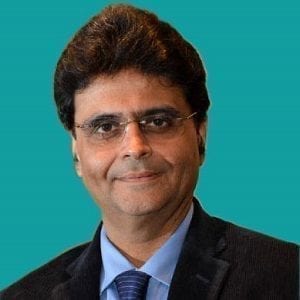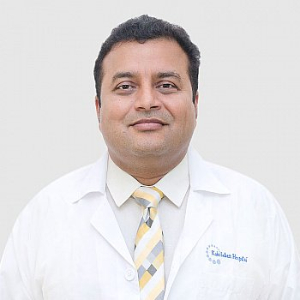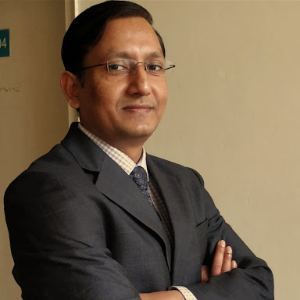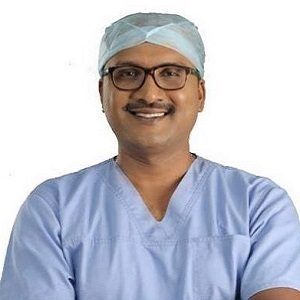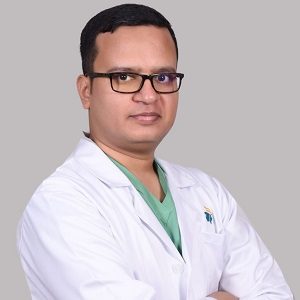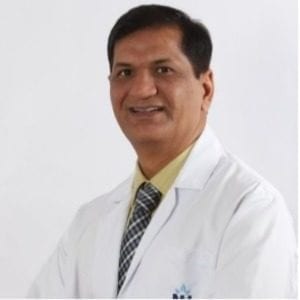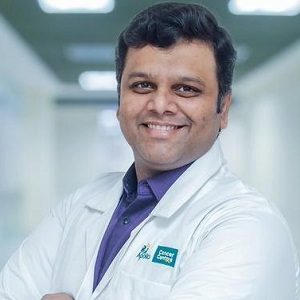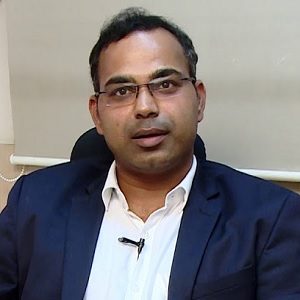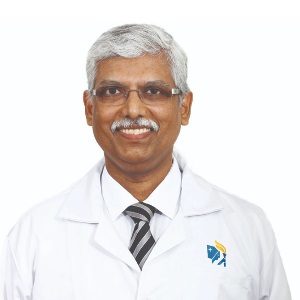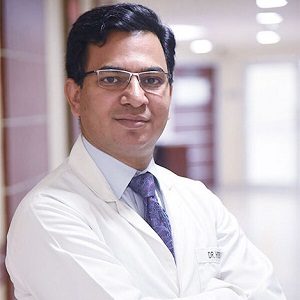Best Doctors in India for Spinal fusion
- Orthopedic Surgeon & Spine Surgeon, Mumbai, India
- Over 25 years’ experience
Profile Highlights:
- Dr. Ram Chaddha is a specialist Spine Surgeon in Mumbai with expertise in the management and treatment of all kinds of spinal disorders for over 25 years.
- Dr. Chaddha is trained in Minimally Invasive Spine Surgery and is also among the few surgeons in India to hold expertise in Minimally Invasive Cosmetic Spine Surgery.
- Dr. Ram Chaddha spent a considerable number of years training undergraduate and postgraduate students and has also been an examiner for such courses at Mumbai University.
- Orthopedic Surgeon and Spine Surgeon, Mumbai, India
- Over 20 years’ experience
Profile Highlights:
- Dr. Vishal Peshattiwar is a leading Spine Surgeon in Mumbai specializing in Minimally Invasive Spine Surgeries (MISS)
- He has an experience of more than 2 decades in spine surgery and holds the credit of performing over 4000 spinal surgeries to
- He is the first in India to use the MISS technique on a patient with liver failure and Tuberculosis.
- Dr. Vishal Peshattiwar’s most notable case till date was performing a Revision Spine Surgery through MISS on the oldest patient in India.
- Orthopedic & Spine Surgeon, New Delhi, India
- Over 14 years’ experience
Profile Highlights:
- Dr. Om Prakash Gupta is a reputed Spine Surgeon in India.
- He is currently functioning as a Consultant – Orthopedics & Spine at Max Smart Super Speciality Hospital, New Delhi
- He has over 14 years of experience.
- Orthopedic Surgeon, Chennai, India
- Over 21 years’ experience
Profile Highlights:
- Dr. A Navaladi Shankar is a well-known spine surgeon and orthopedist in Chennai with 21+ years of experience.
- He completed an MBBS from Al-Ameen Medical College, MNAMS from the National Board of Education, and a Diploma from Sri Ramachandra Medical College and Research Institute.
- Dr. Shankar holds expertise in Laminectomy, Lower Back Pain and Neck Pain Treatment, Arthritis Management, and Trauma Surgery.
- Orthopedic Surgeon & Spine Surgeon, New Delhi, India
- Over 18 years’ experience
Profile Highlights:
- Dr. Amit Kumar Agarwal is a Delhi-based orthopedic, joint replacement, and spine surgeon consultant who has been assuring joint and spine health for about 18 years.
- Dr. Agarwal has garnered numerous accolades for his work in treating Joints and Musculoskeletal Disorders, pain management, sports injury, and articular degeneration during his career.
- Orthopedic and Spine Surgeon, Gurugram, India
- Over 25 years’ experience
Profile Highlights:
- With over 25 years of experience, Dr. Rajesh Kumar Verma can be generally considered a boon for people suffering from complex, bone, joint, or spine disorders.
- Currently known as one of India’s leading spine experts in India, Dr. Rajesh Kumar Verma performs as many as 50 surgeries in a month. The types of surgeries he performs include all types of spine surgeries, joint replacements, as well as complex trauma surgeries.
- Orthopedic Surgeon and Spine Surgeon, Chennai, India
- Over 12 years’ experience
Profile Highlights:
- Dr. Madhu Kiran Yarlagadda is an orthopedics – consultant specializing in Joint and spine surgery and works at the Apollo hospitals of Chennai.
- Dr. Madhu Kiran Yarlagadda’s team carried out Robotic Spine Surgery for the first time in South-East Asia and performed Endoscopic Transforaminal Spine Surgery in Chennai.
- He treats spine diseases and has the facilities and expertise to perform robotic spine surgery. Along with that, he treats patients with joint and other orthopedic issues.
- Spine Surgeon and Orthopaedic Surgeon, Chennai, India
- Over 18 years’ experience
Profile Highlights:
- Dr. Muralidharan Venkatesan is a consultant in spine surgery from Chennai.
- He provides comprehensive cervical (neck), thoracic (upper back), and lumbosacral (lower back) conditions treatment.
- Dr. Venkatesan pursued MBBS, MRCS, and a fellowship FRCS and shifted his specialization to spinal surgery.
- Dr. Venkatesan has his papers published in several journals.
- Orthopedic Surgeon and Spine Surgeon, Chennai, India
- Over 23 years’ experience
Profile Highlights:
- Dr. Ravi Venkatesan is a spine surgery specialist from Chennai, Tamil Nadu.
- His experience in spine surgery, orthopedics, and spine deformity surgery date back nearly 23 years.
- Dr. Venkatesan has performed several surgeries and has been an active member of various orthopedics groups.
- Many organizations have recognized his service and have awarded him for his dedication.
- Orthopedic Surgeon and Spine Surgeon, Gurugram, India
- Over 15 years’ experience
Profile Highlights:
- Dr. Hitesh Garg is one of the best spine surgeons in Gurugram.
- Dr. Hitesh Garg has undertaken over 5000 spine surgical operations, including 2500+ spinal fusions (TLIF, ACDF, and others); 1000 malformation revision operations (Scoliosis and kyphosis), 300 lumbar and cervical artificial disc replacements, 500 fracture treatments, and 500 other intricate procedures such as a spinal tumor, congenital defects, and spinopelvic fixations.
Best Hospitals in India for Spinal fusion
Reliance Hospital, Mumbai
- City: Mumbai, India
Hospital Highlights:
- Reliance Hospital is one of the best super-specialty care hospitals in Navi Mumbai.
- The main purpose of this hospital is to become a trustworthy place for the best health and hope for society. The hospital is well connected to the suburbs of Mumbai and Navi Mumbai.
- The hospital has various specialty departments, viz., Accident & Emergency, Anesthesiology, Dental Services, Dermatology, Diabetology, Dietetics Nutrition, Endocrinology, ENT, Gastroenterology, General Surgery, Gynaecology And Obstetrics, Hepato Pancreato Biliary Surgery, Infectious Disease, Internal Medicine, Interventional Radiology, Laboratory Medicine, Minimal Access Laparoscopic Surgery, Nephrology, Neurosciences, Opthalmology, Orthopaedics, Paediatrics, Pain Management Palliative Care, Physical Medicine Rehabilitation, Plastic And Reconstructive Surgery, Psychiatry, Pulmonary Medicine, Radiology, Rheumatology, Transplant, Urology Andrology, Vascular Surgery
Lilavati Hospital & Research Centre, Mumbai
- City: Mumbai, India
Hospital Highlights:
- Lilavati Hospital & Research Centre is India’s premier multi-speciality tertiary care hospital and has been recognised as a global medical excellence centre.
- Lilavati Hospital & Research Centre has built an unrivalled level of trust with its patients over the years, thanks to a solid foundation that comprises cutting-edge facilities, the best medical competence, research, education, and charity endeavours.
- The hospital is quite proud of the fact that it now serves patients from all kinds of backgrounds, not just from the United States but from all around the world.
- The hospital has a total of 323 beds, one of the largest Intensive Care Units (ICUs), 12 Operation Theatres with modern amenities, over 300 consultants, and almost 1,800 personnel.
Venkateshwar Hospital, Dwarka, New Delhi
- City: New Delhi, India
Hospital Highlights:
- State-of-the-art technology and devoted healthcare professionals have been brought together under one roof at Venkateshwar Hospital to provide genuine medical care. The hospital’s professionals work together as a team to deliver the best possible treatment to their patients, using the most sophisticated equipment and information technology.
- Venkateshwar Hospital’s mission is to attain global excellence in healthcare by employing evidence-based, ethical clinical practices and cutting-edge technology by a team of highly skilled experts.
MGM Healthcare, Chennai
- City: Chennai, India
Hospital Highlights:
- Located in Chennai, India, MGM Healthcare is a top multispecialty hospital that provides all medical services under one roof.
- Since its founding in 2019, MGM Healthcare has quickly become a leading national referral centre, creating several innovative flagship initiatives.
- MGM Healthcare combines next-generation medical and digital technologies to provide better patient results.
- With 12 centres of excellence, more than 400 inpatient beds, 100 intensive care unit beds, and 24/7 emergency care, MGM Healthcare leaves no chance in redefining the patient experience in Chennai.
- MGM Healthcare boasts 250+ expert doctors across 30+ departments, including Cardiology, Pulmonology, Neurology, Obstetrics & Gynaecology, and more.
- They house 12 specialized Centres of Excellence, including Neurosciences, Orthopaedics, and Multi-Organ Transplantation.
- Their team of doctors, nurses, and paramedics works together to give every patient individualized treatment.
Spinal Fusion
Spinal fusion is a surgical procedure which involves connecting two or more vertebrae in your spine permanently to eliminate motion between them. It involves techniques that can mimic the normal healing process of any broken bones. The procedure is performed to fuse together two or more vertebrae so that they may heal into a single, solid bone. This can help in eliminating painful motion as well as restoring stability to your spine.
This surgery is recommended only when your doctor is able to pinpoint the source of your pain. This procedure can help relieve symptoms of many back problems, such as degenerative disk disease, fractured vertebra, spinal stenosis, herniated disk, tumor, etc.
Purpose
Spinal fusion can permanently connect two or more vertebrae in your spine for improving stability, correcting a deformity as well as for reducing pain. Your doctor might recommend spinal fusion to treat any of the following:
Deformities of the spine- Spinal fusion helps in correcting spinal deformities, such as a sideways curvature of the spine termed as scoliosis.
Herniated disk- Spinal fusion can also be used for stabilizing the spine after removal of a damaged (herniated) disk.
Spinal weakness or instability- If there is excessive or abnormal motion between two vertebrae, this can lead to your spine becoming unstable. This is usually a common side effect of severe arthritis in the spine. Spinal fusion can be used for restoring spinal stability in such cases.
Preparation
Prior to your surgery, the surgical site will need to be cleaned with antiseptic and any hair will need to be trimmed. The surgical team can also order a swab sample to monitor any unhealthy bacteria in your nose. If you are taking any kind of medication, you need to let your doctor know. Before your surgery, you might need to stop taking them.
During the Procedure
You will be under general anesthesia during the procedure. There are a variety of techniques for performing this procedure. The technique which your surgeon uses can depend on the location of the vertebrae to be fused, the reason for your fusion as well as your body shape and overall health.
The procedure generally involves the following steps:
Incision
To gain access to the vertebrae being fused, your surgeon will first be making an incision in one of three locations, viz. in your neck or back directly over your spine, on either side of your spine, in your abdomen or throat. This will allow your surgeon to access the spine from the front.
Bone graft preparation
The bone grafts that will actually fuse the two vertebrae can come from a bone bank or from your own body, usually from your pelvis. If your own bone is being used, the surgeon will make an incision above your pelvic bone; then he/she will remove a small portion of it after which he will be closing the incision.
Fusion
For fusing the vertebrae together permanently, the surgeon will need to place the bone graft material between the vertebrae. He/she can use metal plates, screws or rods to help hold the vertebrae together while the bone graft heals.
There are surgeons who use a synthetic substance instead of bone grafts in selected cases. These synthetic substances can help to promote bone growth as well as speed the fusion of the vertebrae.
After spinal fusion
Usually after spinal fusion, you might need to stay in the hospital for two or three days. You may also experience some pain and discomfort, though it can be controlled with the help of medications.
After you reach home, remember to inform your doctor if you exhibit any signs of infections, such as:
- Redness, tenderness, or swelling
- Shaking chills
- Wound drainage
- Fever higher than 100.4 F (38 C)
It will take several months for your bones to heal and fuse together. You might also be recommended to wear a brace for some time to keep your spine aligned correctly. Physical therapy can guide you on how to sit, stand, and walk in a manner that can help keep your spine properly aligned.
Though spinal fusion is an effective treatment for fractures and deformities in the spine, it will not prevent you from developing back pain in the future. Most of the degenerative conditions in your spine are caused by arthritis and this surgery cannot cure your body of that disease.
Risks and complications
Like most surgeries, there are also a few risks associated with spinal fusion. Before your procedure, you need to discuss each of them with your doctor, so that your doctor can take specific measures to help avoid potential complications. Potential risks and complications of spinal fusion are:
- Infection- Antibiotics are given on a regular basis to the patient before, during and often after surgery so that the risk of infections can be lessened.
- Bleeding- A certain amount of bleeding can be expected, though this is not typically significant. Blood donation is not usually required before the procedure.
- Pain at the graft site- Few patients can experience persistent pain at the bone graft site.
- Recurring symptoms- Some patients can experience a recurrence of their original symptoms. There are usually various reasons for this. If your original symptoms recur, you will need to inform your doctor so that he/she can determine the cause.
- Pseudarthrosis- In this condition, there is not enough bone formation. Patients who smoke are usually more likely to develop this condition. Diabetes and older age can also be factors. Moving too soon before the bone is able to start fusing, might result in a pseudarthrosis as well. If this condition occurs, a second surgery may be required for a solid fusion.
- Nerve damage- Nerves or blood vessels can get injured during these operations, though such complications are rare.
- Blood clots- The formation of blood clots in the legs is another uncommon complication. These can pose significant danger if they break off and travel to the lungs.
It is quite important for you to carefully follow your doctor’s instructions relating to the warning signs of blood clots and infection. These complications can occur during the first few weeks after your surgery.

